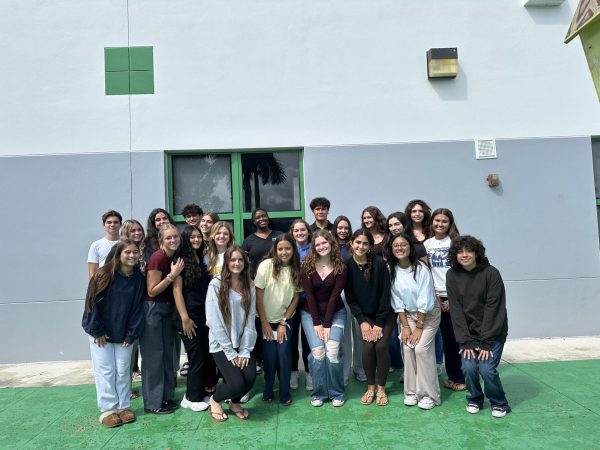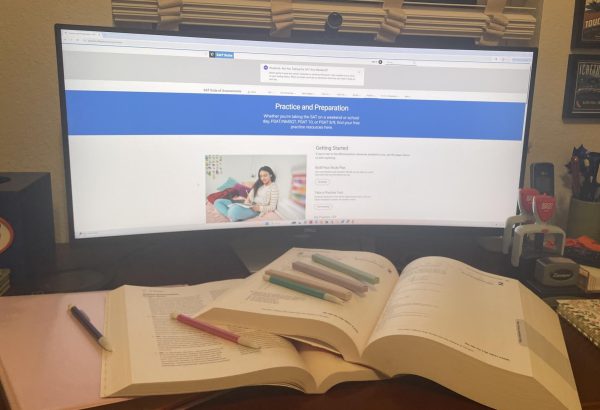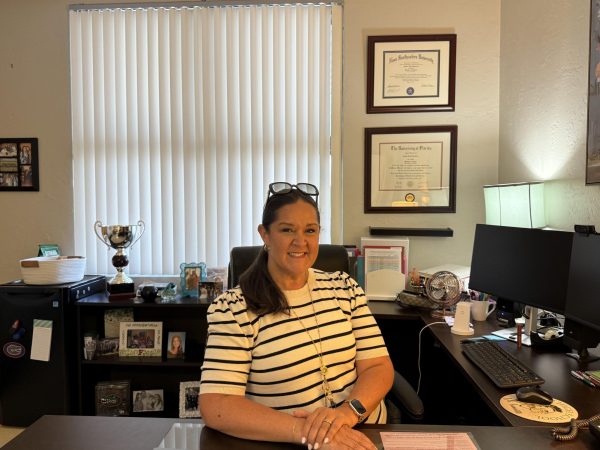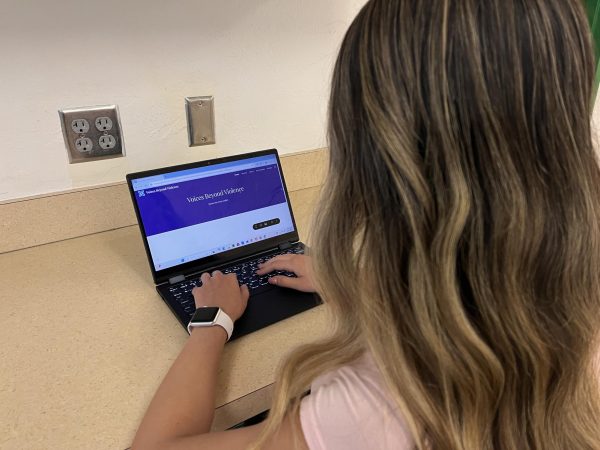Jupiter High implements cell phone policies
The School District of Palm Beach County encouraged teachers to implement stricter rules on student phones for the 2021-2022 school year in order to prioritize academics.
According to teachers, the main concern with phones is they are distracting to the students and their learning.
“I’m just concerned about when the phone is next to the person that it’s a distraction from people trying to pay attention because of the buzzing going off or the sound going off, I need them to focus on what I am doing,” Brenda Troyer, Jupiter High math teacher, said.
Some teachers made the decision to have their students put the phones into a box or sleeve at the start of class.
“Technology was such a problem that this year I thought we would just make it easier and take the option away, so instead of letting it become a problem, it was preventive,” Danielle Steyn, English teacher at Jupiter High, said.
The phones draw attention with each notification.
“It’s very hard to get students to stay focused if their phone is in reaching distance,” Rebecca Hansen, AICE Global Perspectives and Dance teacher, said to her students. “I don’t think it’s anything students do maliciously. I just think it’s like second nature for you to want to go for your phone if you see a snap or a text come through and it just immediately takes your attention off us.”
The students recognize the issue of phones in their learning environment.
“It stops me from being distracted, which is good,” Tess Turcu, sophomore, said.
Will Kelly is in Troyer’s class, and he puts his phone up in the sleeve, which seemed to help his ability to learn improve.
“It has affected me positively because I don’t go on it as much in class,” Kelly said.
Steyn plans on continuing the phone box next year.
“I don’t like doing it. I feel really guilty, but I know there are kids who are already not putting their phones in the box,” Steyn said. “But they’re not coming out, so it’s been very effective.”
Although the phone box seems to be effective, teachers question the risks.
“I don’t like the responsibility of people’s property. I don’t like the possibility of a problem or a stolen cell phone or a crisis that nobody is aware of,” Steyn said.
Hansen chooses not to take phones from students.
“I don’t feel comfortable holding on to thousands of dollars of other people’s technology that people’s parents paid for,” Hansen said.
Students feel comforted by the phone box for this reason too.
“Certain students won’t obey. It causes issues in the classroom and delays class longer than it needs to be…and also people might steal other people’s phones, because that again is another concern people have,” Salem Alexander, senior, said. “It’s just more of an inconvenience than it is a help.”
Phones are also used in classrooms for educational purposes.
“In my course, we need to do research and we can do that with our phones so I try to use it as a tool rather than something that you should take away,” Hansen said.
Students stay engaged with more hands-on learning with technology they are familiar with.
“I mentioned calculators. Kahoot is a big one–everybody loves Kahoot–any kind of online classes, researching vocabulary terms that you might not understand, asking questions, writing down notes, things like that,” Alexander said.
Other teachers decide to follow previous Jupiter High policies when it comes to cell phones because they do not require the teachers to take them. Jupiter High’s policy consists of teachers taking phones to student services whenever a student disrupts the class with it, and asking a parent to pick it up.
Ultimately it is still up to the teachers to decide what is best for their classroom.






